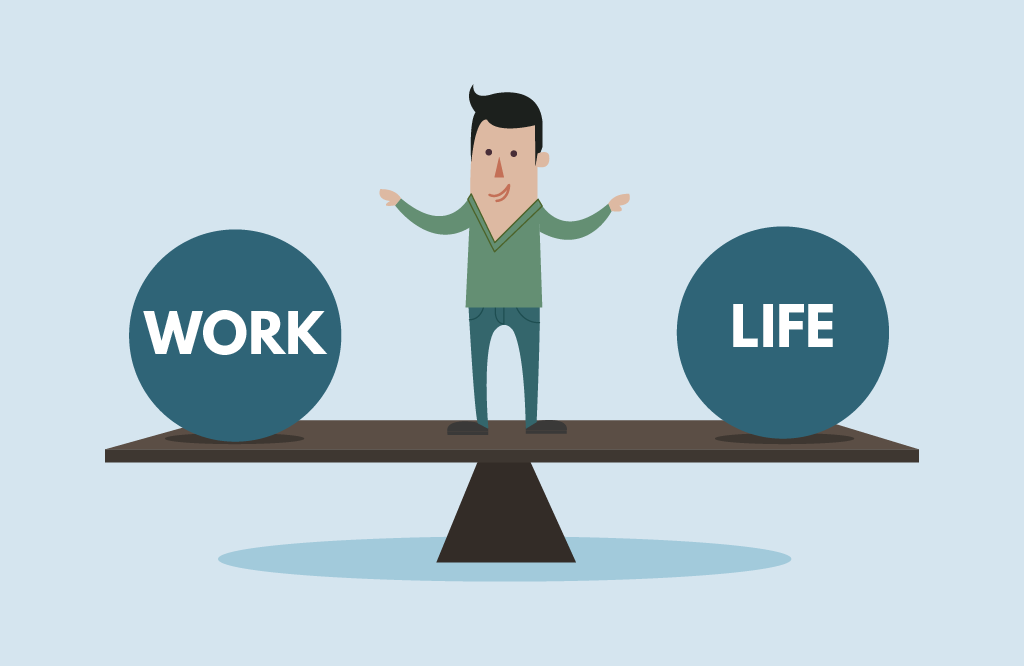In the 21st century, even when we leave from work, we don’t actually leave. As much as we love our smartphones, they really are the biggest hindrances to developing a healthy work life balance. While they allow us to connect with anyone, anywhere, it unfortunately also means anyone can connect with us, anywhere. Even on our days off and vacations, we find it hard to disconnect and ‘switch off’, literally, and employees and employers are expected to be ‘on-call’ at all times, unable to have a life outside of work.
This kind of lifestyle can have serious consequences on our overall health and mental well being. Chronic stress is often a symptom of depression and anxiety later in life. It can also be destructive for the organisation or company as stressed out employees are less productive and more prone to making errors and poor decisions. These individuals can also become perpetually exhausted and run the risk of suffering from burnout syndrome due to their nonstop work life with no space for their family and friends.
All this paints an unhealthy picture and so it is important that we start creating and inculcating a balance between our work and life since the very beginning. A common misconception is; work life balance means we spend equal number of hours working and doing personal activities, this is only true in some rare cases. In any case, forcing oneself to work or relax is unrewarding and unrealistic and has the opposite effect on our health because just the mere thought that we should be doing SOMETHING causes more stress.
Here are some ways in which you can try striking a balance between the two, one step at a time.
1.Unplug: Robert Brooks, a professor of psychology at Harvard Medical School says that it’s important to fix a certain amount of time to ‘unplug’ from the mobile phone and the internet. Notifications and emails interrupt our time off and inject an undercurrent of stress in your system. These prevents us from spending quality time with the people that ywe connect with as well as engaging in things that make us happy and helps us relax. This will allow us to develop a stronger sense of resilience. Brooks also says that “Resilient people feel a greater sense of control over their lives,”, and are ‘’less prone to stress’ prone to stress.’
2.Let go of perfectionism : It is important not to strive for a perfect schedule, but a realistic one. The habit of perfectionism can get destructive easily because life is unpredictable and we won’t always have everything under our control. This is why striving for excellence rather than perfection is a healthier option. Being strict and rigid with your schedule also doesn’t allow balance as both our personal and professional needs can change on a day to day basis and if we aren’t able to be flexible about those changes it can be a form of unnecessary stress and irritability. Remaining open to reassessment and redirection of our schedule and plans is a big part of creating a work life balance.
3.Track your time: Note how many hours in the week we spend working and how much time do we spend doing other activities that interest us. Categorise the hours, noting how much time goes into work, family and other chores. Having a visual representation of this will make us more conscious of how exactly we spend your time and how much of it actually aligns with our personal and professional goals.
4.Take time out for yourself: When planning our day and tracking time, it is also important that we take out some time for ourselves. You can choose what you decide to do during that time like reading a book or meeting a friend, anything that helps you recharge and restore your balance. This will enable us to come back to work, feeling more refreshed, which will have a positive effect on the things around us.
To make the bigger changes you have to first make smaller ones. Start with whatever is easiest for you to achieve and then build it up slowly. An important thing to remember is that a balance is best achieved when it personalised to you, someone else’s full day of balancing work and life will probably not look like your day of doing the same. Most importantly, stay away from perfection and instead strive to achieve the best you can to enjoy life to the fullest extent that you can. Both of these will eventually even out to create the perfect balance just for you.
Authorship: Divina Tejwani

